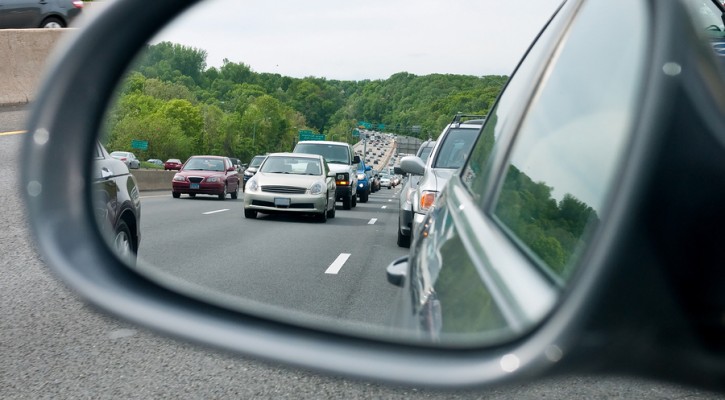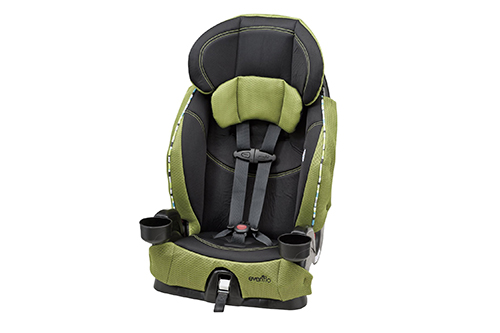
Crash Avoidance Technologies Not Always Effective
December 11, 2014
Crash avoidance technologies aren’t always effective according to research conducted by the American Automobile Association (AAA). The automotive industry and insurance companies have indicated that new crash avoidance technologies that are being introduced in newer model cars have great potential to save lives and reduce insurance rates but, as with all new technologies, there are limitations. The AAA researchers looked at blind spot avoidance and lane departure technologies and found that, under certain conditions, they failed to warn the driver in time to avoid a crash.
In the case of blind spot monitoring systems, researchers found:
- Blind-spot monitoring systems had difficulty detecting fast-moving vehicles – such as when merging onto a busy highway. Alerts were often provided too late for evasive action.
- Motorcycles were detected by blind-spot monitoring systems 26 percent later than passenger vehicles.
With lane departure systems, the research indicated that:
- Road conditions were often a problem for lane-departure warning systems. Worn pavement markers, construction zones and intersections can cause the lane-departure warning system to lose track of lane location.
- The litany of alerts and warnings could be confusing. Auditory, visual or haptic responses – or a combination – could be similar to other advanced driver assistance features that delivered the same warnings.
All of the new systems do have the potential to prevent crashes and save lives but, until the systems evolve, they should still only serve as an aid to drivers. Drivers still need to be aware of the driving situation and rely on the crash avoidance systems only as a backup.
For more information, read: New Car Technologies Still Working Out the Kinks, Says AAA Assessment

NHTSA Wants Parents To Register Their Car Seats
December 3, 2014
After several recalls of child car seats, both voluntary and those ordered by the National Highway Traffic Safety Administration (NHTSA), NHTSA is urging parents and caregivers to register their car seat and to sign up for recall notifications.
To register your child’s car seat you can visit the NHTSA car seat registration website. Once there, you can plug in the manufacturer and model type and you will be directed to the registration page for that car seat.
You can also register on the NHTSA recall notification website. From that page, you can not only request to be notified for car seats but also your vehicle, tires, motorcycles, and more. If NHTSA orders a recall on any of these products, you will be notified by email.
Read more: NHTSA campaign urges caregivers to register their car seat

AAA Studies Drowsy Driving
December 3, 2014
More than one-fifth of fatal motor vehicle crashes involved drowsy drivers according to a new study by the American Automobile Association. The study looked at data from a representative sample of 14,268 crashes between 2009 and 2013 and determined that an average of 6,400 people are killed in 328,000 drowsy driving crashes per year.
Among their findings, the study determined that drowsy driving caused:
- 6% of all crashes in which a vehicle was towed from the scene;
- 7% of crashes in which a person received treatment for injuries sustained in the crash;
- 13% of crashes in which a person was hospitalized and;
- 21% of crashes in which a person was killed.
Sleep deprived nation
America is a sleep deprived nation. According to the National Sleep Foundation, 60% of Americans have driven while feeling sleepy and 37% admit to actually having fallen asleep at the wheel in the past year.
A recent National Geographic TV special explained that sleep serves a necessary biological function and serves to clear toxic chemicals from the brain. One toxic substance that is known to be cleared out during sleep is associated with Alzheimer’s disease and it’s thought that not getting enough sleep could lead to the development of Alzheimer’s disease.
According to National Geographic, having a sleep deficit is like having an overdraft at the bank. If you sleep only six hours a night on weeknights and try to make it up by sleeping two extra hours on Saturday, you still have a sleep deficit of eight hours remaining. That has to be paid back somehow and, unfortunately, it’s often paid back behind the wheel.
Getting a full night’s sleep is critical, not only for safe driving but also for our overall health. For tips on getting a full night’s sleep, visit: Sleep tools and tips

Are You Addicted To Your Smartphone?
December 3, 2014
Addictions take many forms and it’s becoming apparent that more and more Americans are addicted to their smartphones or other digital devices.
Addictions can be somewhat harmless or they can take over and ruin your life and the lives of others that you love and care about. Not only can addictions ruin your life, they can be life threatening. In the case of smartphones and other digital devices, the constant urge to always stay connected can take over one’s life and, if done while driving, can easily lead to a fatal crash.
The Center for Internet and Technology Addiction has created a test to determine whether or not you could be addicted to your digital devices and may need help in curbing your need to stay connected. To take the test, visit: Digital Distraction Test

46.3 Million Expected On Roads Thanksgiving Weekend
November 26, 2014
This Thanksgiving weekend, the American Automobile Association (AAA) anticipates that 46.3 million people will be out on the roads. With gas prices lower than they have been in years, most Americans will be traveling by car on this, the most heavily traveled holiday of the year. This will also be the deadliest holiday of the year for American motorists.
Keep your cool
With so many cars on the road, you can expect that there will be traffic jams. Leave as early as you can and expect delays. Expect also that there will be drivers on the road with short tempers. Watch your temper and don’t let them goad you into taking some kind of risky action.
If you encounter other, inconsiderate drivers, don’t try to retaliate against them. You never know when you may be pushing another driver over the edge into a road rage situation. If another driver is driving aggressively and dangerously, stay out of their way.
Remember, there’s no such thing as a motor vehicle accident. Car crashes happen when one or more drivers make a poor choice. It’s not an accident! Bad driver behavior causes crashes, not fate.
Don’t Drive Drowsy
If you’re feeling groggy, don’t try to push it. Get off the road and rest. Swap off driving duties with another driver. Take a break every two hours or 100 miles.
If you’re feeling drowsy, stop and get some coffee or some other kind of caffeinated drink. Remember that it will take time for the caffeine to kick in so, after consuming the drink, take a short half-hour nap. With the short nap and the caffeine kicking in, you should feel rested and ready to go.
Remember that it’s better to be late than to never arrive at all.
Watch the weather
Weather conditions are expected to be bad with snow forecast from Washington DC northward. The mid-west is also expecting snow. Watch the weather forecasts and give yourself extra time for weather delays.
Make sure you have warm weather clothing and blankets in case you get stuck. Carry a bag of cat litter and salt in the trunk for traction in icy conditions.
Click it or ticket
Your seat belt is the most important safety device in the car. No matter what type or how bad the crash, you’re always safer when you’re buckled in. Police will be out in force this weekend and will be giving tickets to drivers who aren’t wearing a seat belt.
